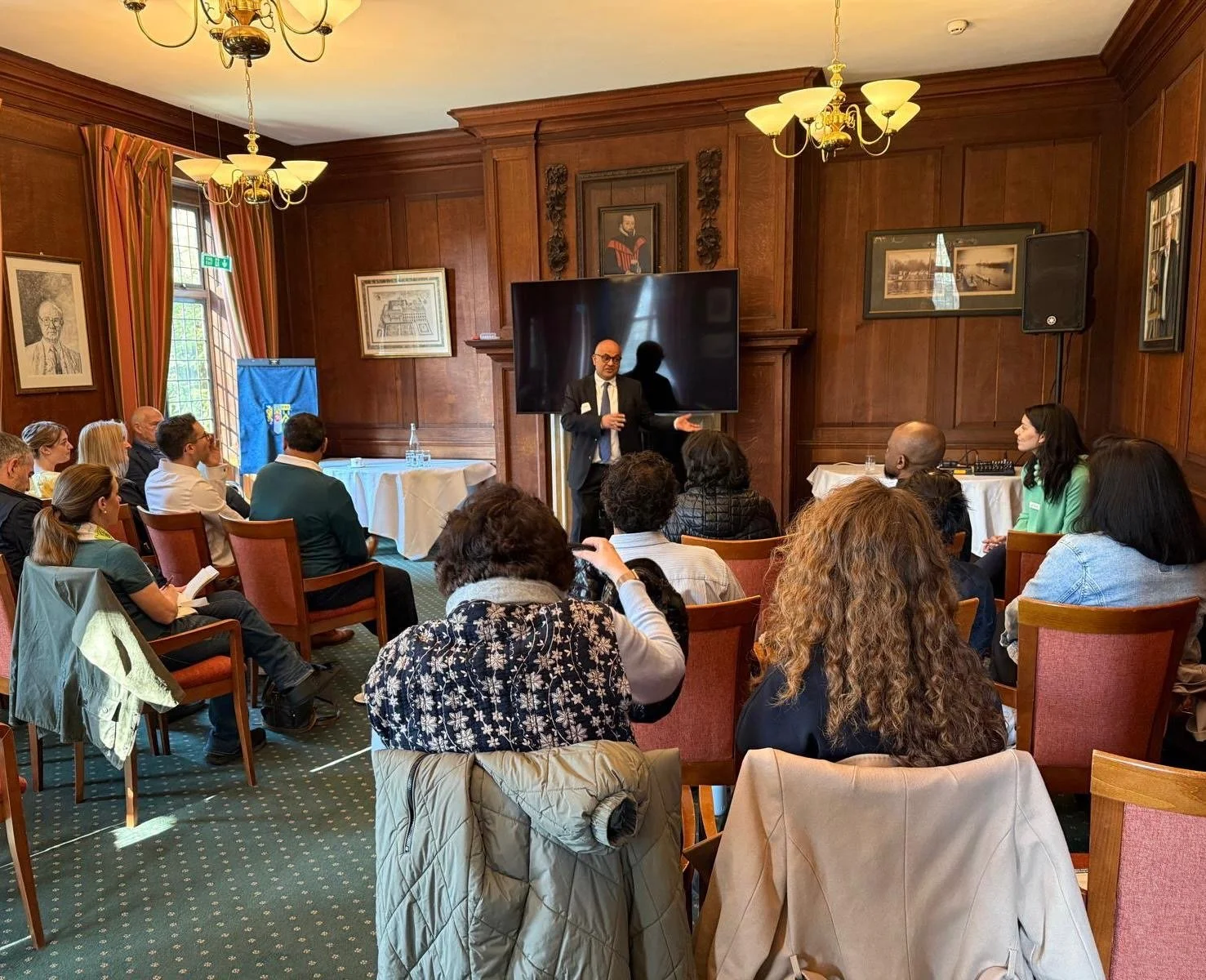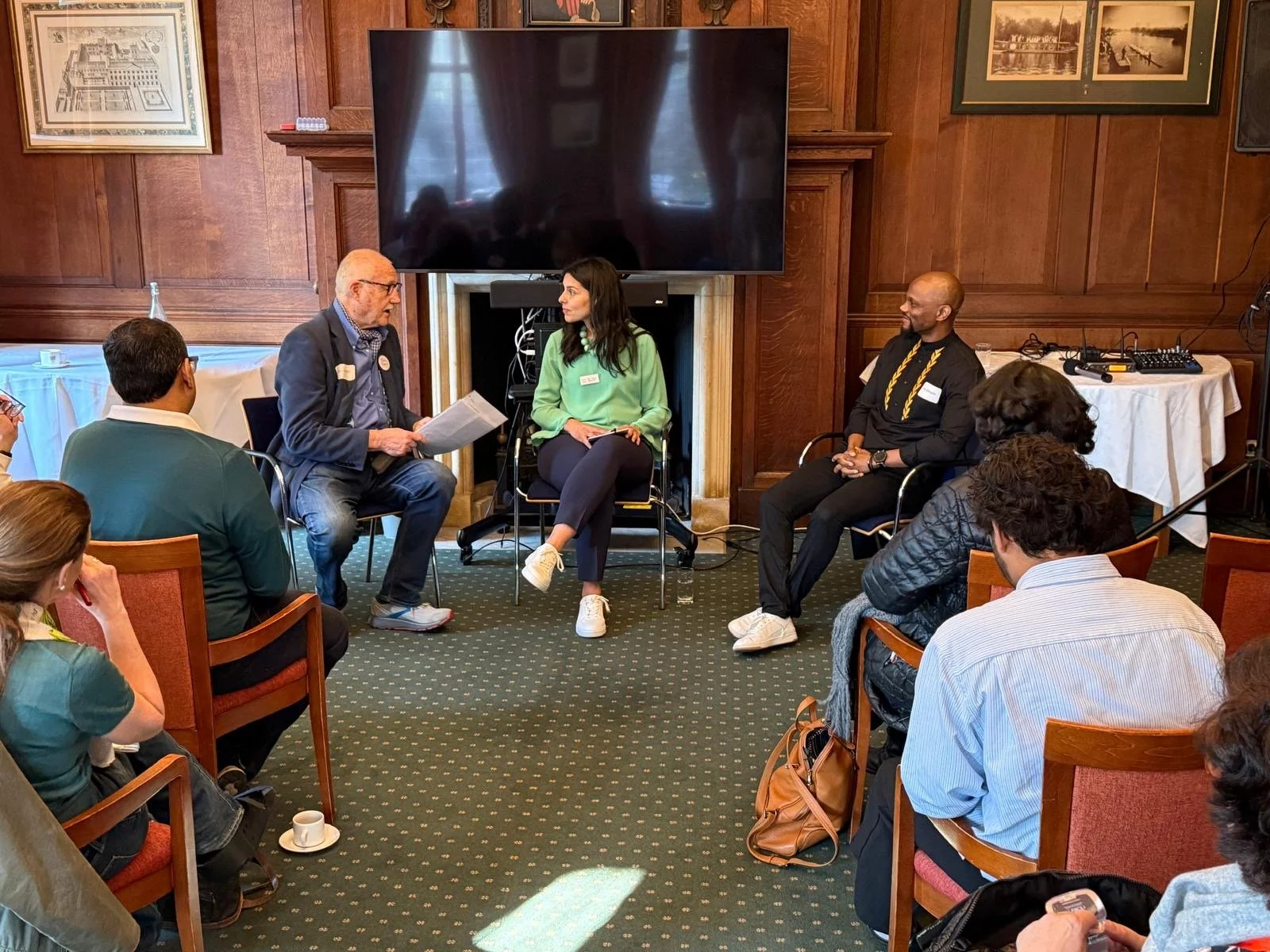Powerful Panel Highlights Importance of Dignity-Centred Care
What does care look like for seriously ill children?
This question framed much of the discussion at Global Treehouse’s breakfast event during the Skoll World Forum in April 2025. Hosted at the historic Corpus Christi College in Oxford, United Kingdom, the event brought together experts, philanthropists and social innovators for an insightful conversation on “Dignity in Childhood: Closing the Gap in Palliative and Serious Illness Care.”
For many attendees, this was the first time children’s palliative care was framed within the broader conversation of health-system-strengthening as dignity-centred care. Traditionally viewed as a niche or end-of-life intervention, this shift highlighted the wider role of children's palliative care as a universal, compassionate human right - something that extends far beyond the care of the terminally ill. The discussion resonated deeply, with a clear message: integrating palliative care into health systems supports families, helps reduce avoidable hospitalisations, trains healthcare workers in compassionate care and ultimately strengthens the entire healthcare system.
Dr Tagore Charles, Consultant Paediatrician, Medical Director at Noah’s Ark Children’s Hospice and Global Treehouse advisor, opened the event by calling for urgent action for the eight million children worldwide who require specialised paediatric palliative care. He also evoked the perspective of true care: as a young doctor, how the first patient cases impacted his perspective as a clinician and leader committed to this space.
Brian Walusimbi, a Senior Skoll Fellow and the Executive Director of Bless A Child, spoke passionately about the need for bold philanthropic investment in this field and to go beyond the initial reluctance to discuss serious illness and death in children. Drawing from his experience in Uganda, he highlighted the importance of taking a holistic approach to care for children with cancer and their families, and how relatively simple actions can greatly improve pain relief and service delivery.
Laura Dale-Harris, Executive Director of Global Treehouse, shared insights on the role of social innovation in the field, especially at the intersection of user-based design, technology, and meeting the needs of families and practitioners. She also introduced participants to an excerpt from the powerful documentary All Flights Will Unfold, created by Casa Arara Azul, a Global Treehouse partner in Brazil.
Moderator Chris Underhill, a Skoll Awardee and Senior Ashoka Fellow, also provided his perspective during the session, emphasising the importance of mental health and well-being for both caregivers and healthcare providers.
The event ended with a thought-provoking Q&A and discussion session among the audience, which included leaders in philanthropy, responsible businesses and nonprofits. Participants underscored the need to continue pushing for greater integration of children’s palliative care into health systems, especially in fragile contexts where palliative approaches can be transformative.
Key takeaways from the discussion included:
Narrative is Key: Talking about serious illness, death and dying in childhood is the first step in making it a priority - shifting the conversation from a niche issue to a fundamental part of compassionate (health)care..
Children’s Palliative Care as a Human Right: It’s essential not only for end-of-life care but as a vital part of holistic, dignity-centred care for children and families.
Investment in Leadership: Strengthening leadership in the field is crucial to creating lasting change and improving access to compassionate care for children.




